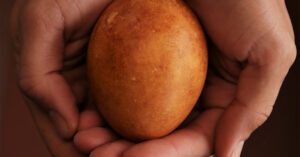
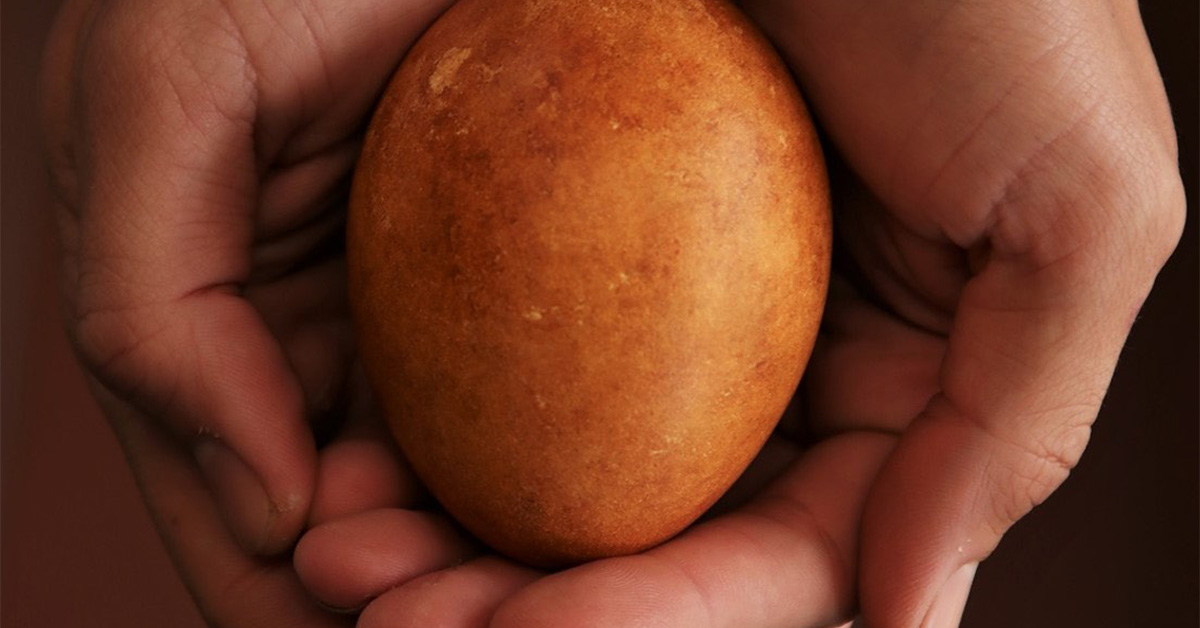
Shannon Hoffman (onair@africanraptor.co.za) is the programme manager for the “Bred 4 the Wild” Bearded Vulture Breeding Programme. For more information see Facebook: African Raptor Centre; Instagram: @Bred 4 the Wild.

God doesn’t call the equipped, he equips the called. This statement bolsters my shaky heart when I contemplate the scale of the task at hand, so beyond my abilities and resources that if it isn’t of God, there is no way to succeed. Our calling can be described as what we are meant to do in life, or perhaps, who we are meant to become. What if we shift the focus: would it not be more apt to say that it’s hearing God’s call as he draws us to himself; becoming more like him. And, as we “do life” and listen for his voice, it becomes more about him and less about us. Jeremiah 29:13 so beautifully promises, “I will be found by you, declares the Lord.”
This story I share is about a bird. It’s also become my own; woven together into God’s story, part of his greater plan. So, in relating the goodness of God as I have experienced him, know it’s biased, of the heart and personal, but how wonderful to know that even in his all-encompassing sovereignty our God is still deeply relational. He’s in the now, as I write and as you read.
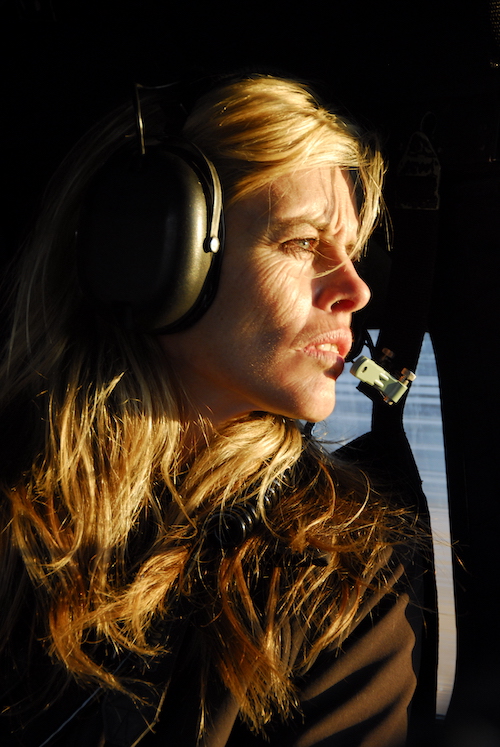
The bearded vulture (Gypaetus barbatus meridionalis) is a large and highly specialized bird of prey, which looks more like an eagle than a scavenger, unique in both behaviour and adaptation. It is the only bird in the world to live on the unlikely diet of bones, which are swallowed whole, or if too large, dropped from the air onto flat rock surfaces called ossuaries to smash open and access the nutritious marrow. Its name is from the distinctive black “highwayman” mask made up of stiff, hair-like feathers that extend into a beard under its chin.
The last remnant group of this magnificent bird lives high up in the Maloti-Drakensberg mountains that serrate the border between South Africa and Lesotho. Over the past few decades this wild population has declined by at least thirty percent, until it is estimated that fewer than three hundred and fifty birds remain. I manage the “Bred 4 the Wild” Bearded Vulture Breeding Programme, now part of a collaborative conservation effort between governments, the formal conservation sector, corporates and private specialists, aimed at saving this critically endangered species from extinction.
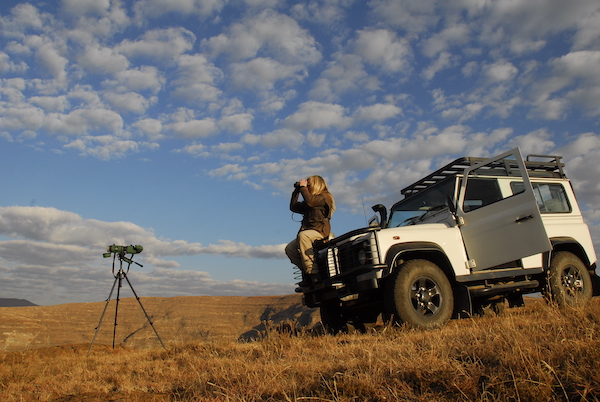
Bearded vultures breed just once a year in the dead of winter, nesting high in cliff-face potholes weathered by wind, rain and time. Breeding pairs lay two eggs, but only ever raise a single chick. In a behaviour called cainism, (named from the Old Testament story of Cain and Abel), the older sibling out-competes the younger one on the nest platform within a couple of days of hatching. The challenging aim of our breeding programme is to carefully harvest thirty-two of these second eggs to hatch and raise in breeding stations. This captive group forms a genetic reserve to guard against species extinction and, more importantly, their progeny will be released to supplement the dwindling population in the wild.
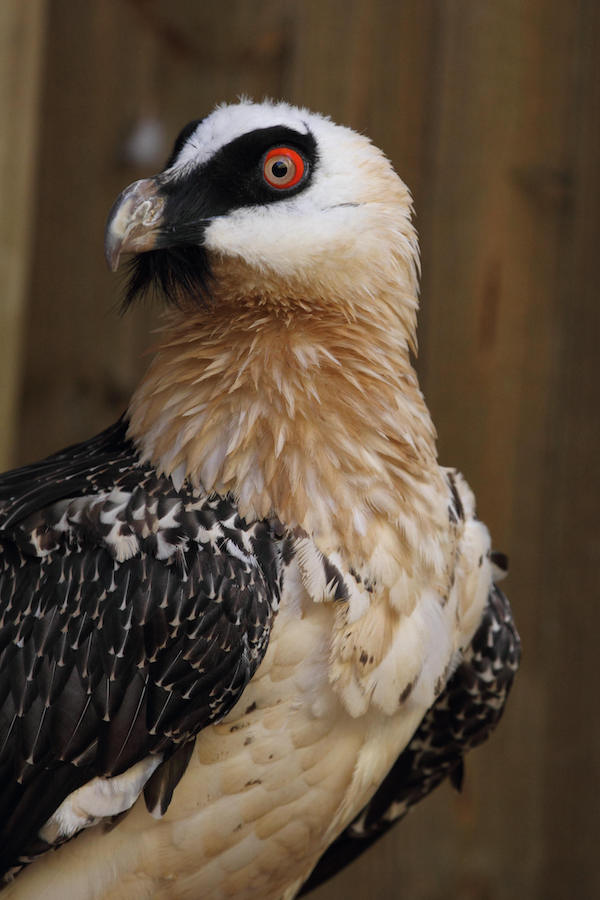
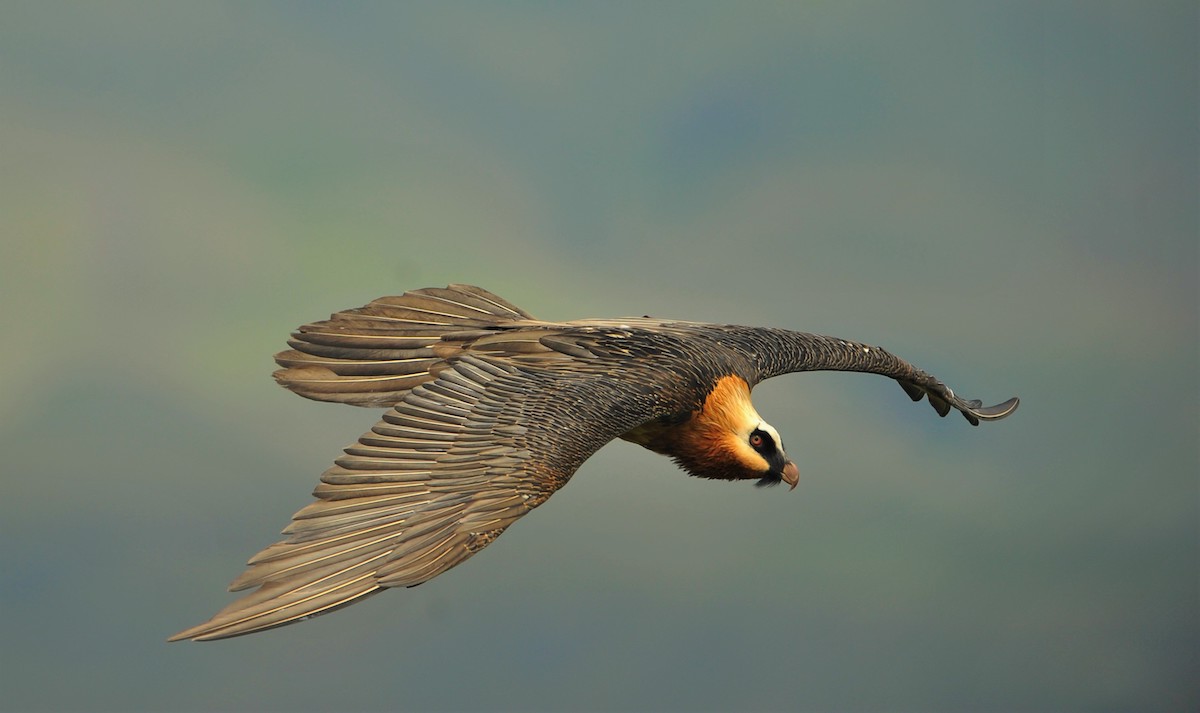
That’s the biology and programme structure, but let’s get back to the bird and how it all began. Leseli (pronounced Lesedi), when I met her, was a near-adult bearded vulture female, confiscated from a sangoma (traditional healer) and brought into our rehabilitation centre for care. A rarity indeed, she was only the second of her kind to be seen in captivity in twenty years in southern Africa. When placed in a long flight tunnel to prepare her for release, however, she didn’t fly. Just as a child, raised in a cardboard box can’t be expected to know how to run, so Leseli was yet to realize the potential of her wings. Sitting with this beautiful, bearded lady, the idea of her living out her life alone, while her wild counterparts continued to decline, seemed too awful to contemplate. During my career in raptor captive management, I have worked with many non-releasable rehabilitation birds; end-of-the-line raptors that can no longer be released due to physical or behavioural defects. In each one of them I learnt to see the potential that maybe God sees in each of us broken vessels. Loving us even before we love ourselves. These birds have been my greatest teachers.
The International Union for Conservation of Nature advises that when a threatened species drops below one thousand in number, captive breeding should be initiated. How would we achieve this with no birds with which to breed? Could the redundant eggs be harvested and how would they be raised? So often well-meaning humans do animals an irreversible disservice by hand-raising them. This renders the creature an imprint, animals that “think they are people” and are unable to interact with their own kind. In the last twenty years I have developed an odd set of skills, of little value in this modern world, but in this case, strangely applicable. My understanding of compromised birds, coupled with a deep appreciation of wild things in wild places, allows me to interface the in-situ and ex-situ requirements of this long-term programme which will likely be the culmination of my career.
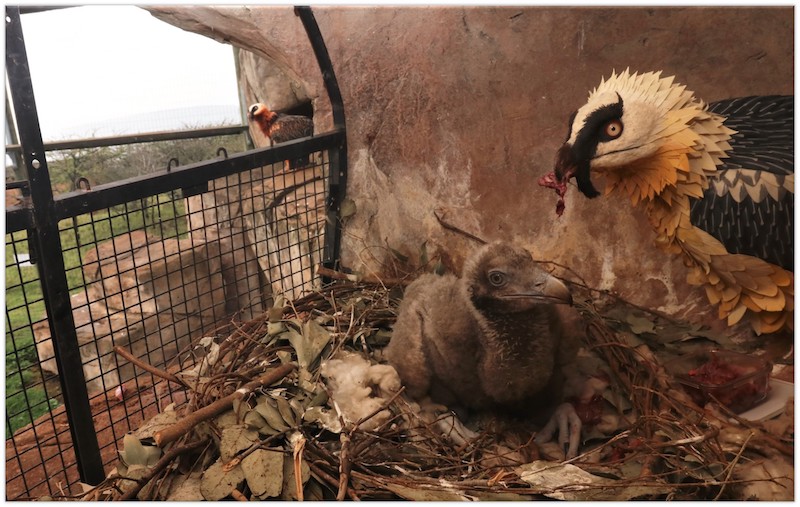
God, in his infinite kindness, so often prepares us with life experiences for what is to come. Thus was birthed a dream, so big that it scares me; for which I am called upon to perform at the full extent of my ability and solidly into his. And as the programme began, instead of being redundant, Leseli became the surrogate parent, pivotal for the captive flock and perhaps even the very hope of her species. Hatched chicks are puppet-raised from behind a screen in glass incubators and brooders for the first twenty days of life. Thereafter they are transferred to an outside rearing enclosure where they have visual exposure to Leseli so that they grow up knowing what they are.
What started as a conservation project, has proved to be so much more. I believe the programme’s value is in the hope it represents, a commodity which is like fresh water to a thirsty world. It is my sincere prayer that, in response to the freedom of wild places, hearts will be opened to the call of our creator God, who already knows us by name, loves us completely and offers to uphold and lead us through life with his righteous right hand.
And we know that in all things God works for the good of those that love him, who have been called according to his purpose (Rom 8:28). Time and time again, in this journey with our loving Father, have I experienced his mercy and grace. On one occasion, driving down the steep and treacherous Sani Pass and carrying the precious cargo of a harvested egg, the brakes of our 4×4 vehicle failed. I remember feeling the most amazing peace, even as the driver’s neck muscles spasmed in anxiety. How often does the pride of self-sufficiency fool us into thinking that we are in control of our lives! In what seemed like an accelerated eternity we made it safely through the South African border post below. Remarkably, the chick could be heard calling from inside the egg, a gentle tribute to his maker.

Months later, at the top of this same pass, I sat on the cliff edge looking out over the distant world below. That day, (fickle human that I am), my “inner peace” was gone and I prayed desperately to a seemingly silent God for clarity and life direction. Eventually, after hours, I realized that I must end my vigil in order to make the evening border closing times, exiting Lesotho and returning home to South Africa. As I scrambled to my feet and turned, and in his “perfect” timing, an almost audible “Trust me” filled my head and heart. I’m embarrassed to admit that the best response I could muster was a retaliating yell at heaven, “I’m trying!” By his gentlemanly grace, I still made the border crossing with minutes to spare.
In 2016, extreme snowfalls covered the extent of the breeding range over the three-week harvest period. Right at the end of the season (in desperation to not waste the year), the harvest team attempted to access a high mountain nest via helicopter. As we approached the escarpment, and the craft was buffeted by the wind, I knew with gut-wrenching certainty that we were in life-threatening danger. “Please Jesus, save us” was the simple, stricken prayer of my heart. Well, he did. Later, as our full team regrouped in the snow and watched the smashed helicopter burn, I thanked God for his great mercy of second chances. Of the four passengers I was the only one to know who holds our salvation in his hands.
On another occasion I sat in Lesotho with a local headman, watching the climber prepare to go over the cliff edge to harvest an egg. Although briefed and in agreement to the access, the headman suddenly panicked at the process, having no experience of the skilled ropework and safety protocols that the high-altitude expert would employ. Grasping for a way to help him understand and to allay his fears, I asked him if he knew God. “The Lord?” his eyes flicked at me. “I do!” he exclaimed. And that was how two people, man and woman, from completely different backgrounds and cultures had the privilege of praying for another.

Sharing the high-altitude home of the bearded vultures are communities of pastoral people. Many of the shepherds caring for the herds of sheep and goats are young boys who live exposed to weather extremes. Their understanding of bearded vultures ranges from disinterest in the mundane to gentle acceptance, taking for granted what they see daily. During our field work we try to share our appreciation of the rare and beautiful birds and in return glean much from local knowledge.
Before we can ask the hill children to care about the birds, however, they need to know that we care about them. Hearing of this requirement, groups of ladies in South Africa stepped up to knit beanies for these youngsters, whom they will never even meet. Their kindness is received with such excitement as the children choose from a wonderful assortment of colour and design. The beanies might just be a simple handshake of introduction, but they initiate conversation about the bearded vultures, their threatened status and what our project is all about. Sometimes we need not do great things, but only small things with great love.
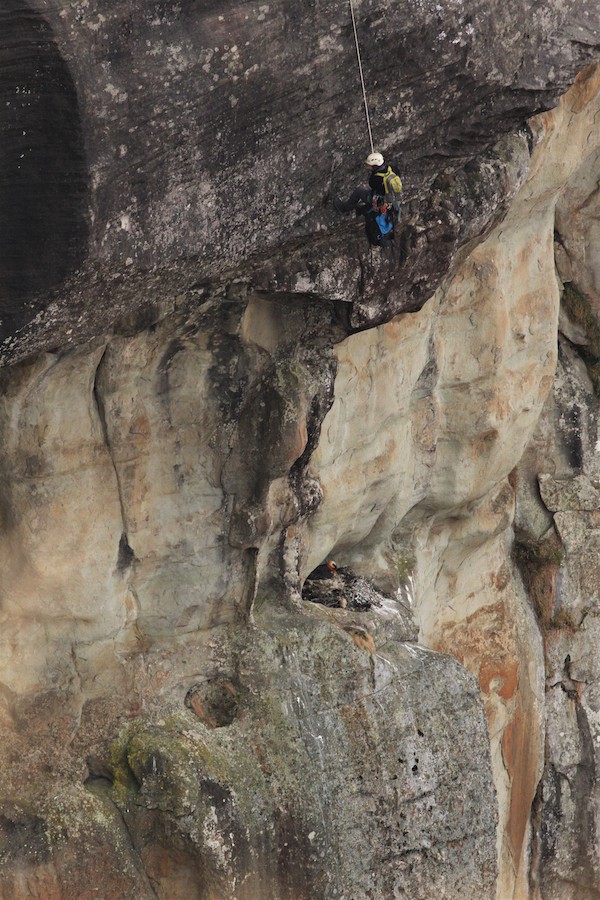
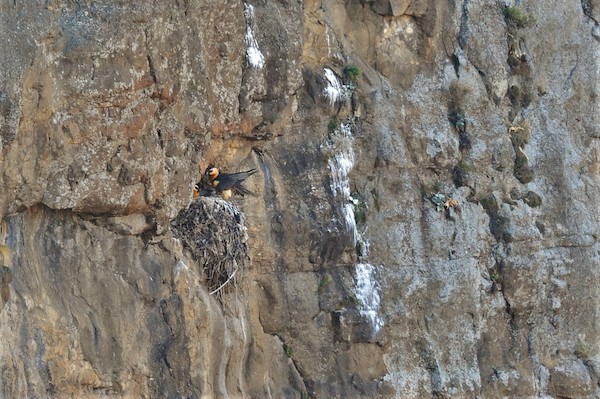
In 2022, we lost a programe bird, a three-year-old female, called Red. Big and beautiful, she showed no signs of illness before we found her dead on the enclosure floor. Three of us sat around her lifeless form, looking for answers, trying to understand. What a terrible loss of time and genetics to the programme and of herself to us who knew her. Life sometimes gets hard. It just does. God’s word never said any different, but he does promise to never leave us, and he can turn what is meant for evil into good. That season, the only escarpment nest available for harvest was Red’s original natal home. We were able to collect and bring down a brother. We called him Rooster. At the beginning of the season the captive group of birds was sexually skewed, with more females than males. With Red’s passing at the end of the season we have a perfect pairing balance of nine males and nine females. To God be the glory!
Although only halfway through our story, it is coloured by a tapestry of people, woven together from every walk of life by a shared hope and a future. May our story encourage your own and, to those who dare to dream and hear God’s call: don’t doubt it.


Get the latest issue in print or subscribe for the next three.